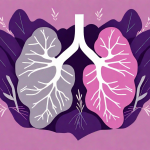Adopting healthy lifestyle changes plays a crucial role in reducing cancer risk. Evidence suggests that choices such as a balanced diet, regular exercise, and avoiding harmful substances are key strategies in cancer prevention. Understanding the link between lifestyle factors and cancer can guide individuals towards healthier habits.
Key lifestyle adjustments include:
- Diet and Nutrition: A healthy balanced diet rich in fruits, vegetables, and whole grains lowers cancer risk by providing essential nutrients and antioxidants.
- Physical Activity: Regular exercise helps maintain a healthy weight and boosts immune function, reducing the risk of cancers like breast, colon, and prostate cancer.
- Avoiding Harmful Substances: Smoking cessation and limiting exposure to environmental toxins, such as radon, significantly decrease cancer risk.
- Maintaining a Healthy Weight: Achieving and sustaining a healthy weight mitigates obesity-related cancer risks.
- Other Lifestyle Changes: Incorporating regular health screenings, stress management, and adequate sleep further supports cancer prevention.
Implementing these lifestyle changes not only aids in cancer prevention but also enhances overall health and well-being.
Key Takeaways:
The Link Between Lifestyle and Cancer

Lifestyle choices, such as diet and exercise, have a significant impact on the risk of developing cancer. Adopting a healthy lifestyle, including regular physical activity and a balanced diet, can reduce the risk of cancers like breast, colon, and prostate cancer. Regular skin exams and screening tests further support cancer prevention.
Quitting smoking and maintaining a healthy weight are crucial for cancer prevention.
Understanding the Connection
The connection between lifestyle and cancer involves diet, exercise, and body weight, which influence cancer risk and prevention.
Excessive body weight increases cancer risk by raising insulin levels and causing hormonal imbalances.
A plant-based diet high in antioxidants from fruits and vegetables protects cells by reducing oxidative stress, lowering cancer risk.
Regular exercise aids weight control, boosts immune function, and decreases inflammation, all reducing cancer risk.
Common Lifestyle Factors that Increase Cancer Risk
Common lifestyle factors that increase cancer risk include smoking, poor diet, and lack of physical activity.
Smoking increases lung cancer risk. Poor diet, low in fruits and vegetables, raises colon cancer risk. Sedentary lifestyle increases obesity-related cancer risk.
Environmental toxins, like radon, elevate risk for skin and lung cancers.
Diet and Nutrition
Diet and nutrition play a vital role in cancer prevention. A healthy diet rich in fruits, vegetables, and whole grains reduces the risk of various cancers, including lung and skin cancer.
The Mediterranean diet, emphasizing fresh produce, whole grains, legumes, and healthy fats like olive oil, is especially beneficial. It limits red meat and processed sugars, reducing the risk of cancers such as prostate cancer.
Antioxidants and phytochemicals in these foods enhance the body’s natural defenses against cancer. Brightly colored fruits and vegetables—such as tomatoes, berries, and leafy greens—provide essential nutrients and bioactive compounds.
To adopt healthier eating habits, individuals can start by:
- Meal prepping
- Experimenting with new recipes
- Replacing processed snacks with fruits and nuts
Physical Activity
Physical activity is essential for maintaining a healthy weight and may aid in cancer prevention, especially for breast and colon cancers.
Adults should aim for at least 150 minutes of moderate-intensity aerobic activity each week, like brisk walking or cycling, to achieve health benefits.
Regular exercise helps regulate hormones, boost the immune system, and reduce inflammation, lowering cancer risk. An exercise program tailored to individual needs can be beneficial.
Smoking and Tobacco Use

Smoking and tobacco use are the leading preventable causes of cancer, particularly lung cancer.
Cigarettes contain chemicals that damage lung tissue and impair the immune system.
Tobacco use increases the risk of various cancers, including throat and bladder cancer.
Quitting smoking significantly reduces cancer risk and improves health.
Environmental Exposures
Environmental exposures, such as radon and carcinogens, can increase cancer risk.
Exposure to air pollutants, pesticides, and toxic household substances contributes to this risk.
Radon is a colorless, odorless gas that requires radon testing since it poses health risks even at low levels.
Reducing exposure to these substances can lower cancer risk and enhance health.
Proven Ways to Reduce Cancer Risk
Proven ways to reduce cancer risk, as recommended by the American Cancer Society, include:
- Quitting smoking
- Limiting alcohol consumption
- Eating a diet rich in fruits and vegetables
- Exercising regularly
- Using sunscreen to protect against UV rays
Reducing cancer risk involves adopting these healthy lifestyle practices, which are endorsed by the American Cancer Society for cancer prevention.
Healthy Eating Habits
Healthy eating habits include consuming a variety of fruits, vegetables, whole grains, legumes, nuts, and seeds to promote overall health and prevent diseases like cancer.
Aim for at least five servings of fruits and vegetables daily to maximize nutrient intake and benefit from antioxidants and fiber.
Regular Exercise
Regular exercise involves engaging in activities like aerobic workouts, strength training, and flexibility exercises to maintain health and prevent diseases such as cancer.
For optimal health, the World Health Organization suggests at least 150 minutes of moderate exercise or 75 minutes of vigorous exercise weekly.
Regular exercise improves cardiovascular health, boosts immune function, and reduces inflammation.
Avoiding Harmful Substances

Avoiding harmful substances reduces cancer risk and promotes health. Key harmful substances include tobacco, environmental carcinogens like benzene, and processed meats with nitrates.
Measures to avoid these substances include:
- Choosing organic foods,
- Using natural cleaning products,
- Ensuring proper ventilation at home.
- Conducting regular radon testing.
Maintaining a Healthy Weight
Maintaining a healthy weight helps prevent cancer by reducing the risk associated with obesity-related cancers, such as breast and prostate cancer.
A balanced diet with fruits, vegetables, whole grains, and lean proteins, along with regular physical activity like walking or swimming, supports weight management.
Healthy weight management reduces the risk of chronic diseases beyond cancer.
Other Lifestyle Changes to Consider
Other lifestyle changes for cancer prevention include regular health screenings, stress management, and adequate sleep.
Regular screenings detect health issues early, aiding prevention.
Stress management, through mindfulness or yoga, supports the immune system.
Adequate sleep maintains hormonal balance and repairs cellular damage, reducing cancer risk.
Frequently Asked Questions
What are some lifestyle changes that can reduce cancer risk?
Some lifestyle changes that can reduce cancer risk include maintaining a healthy diet, exercising regularly, not smoking, limiting alcohol consumption, and protecting yourself from the sun’s harmful UV rays.
Can losing weight reduce the risk of developing cancer?

Yes, maintaining a healthy weight can significantly reduce the risk of developing certain types of cancer, such as breast, colon, and kidney cancer.
Is there a link between diet and cancer risk?
Yes, a diet high in processed and red meats, saturated fats, and refined sugars has been linked to an increased risk of cancer. Opting for a diet rich in fruits, vegetables, and whole grains can help reduce the risk.
How does regular exercise help reduce cancer risk?
Regular exercise can help maintain a healthy weight, boost the immune system, and decrease inflammation, all of which can contribute to reducing the risk of cancer.
What lifestyle factors increase the risk of cancer?
In addition to maintaining a poor diet and lack of exercise, smoking, excessive alcohol consumption, and prolonged exposure to UV rays are all lifestyle factors that can increase the risk of cancer.
Can lifestyle changes reduce cancer risk for everyone?
While lifestyle changes can greatly decrease the risk of developing cancer, genetics and other factors can also play a role. It is important to consult with a healthcare professional to assess individual risk factors and make appropriate lifestyle changes.





